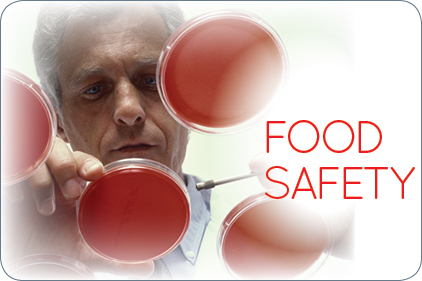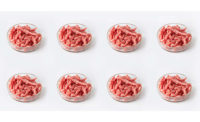FSIS has begun focusing more aggressively on possible connections between slaughter establishments and positive ground-beef samples. Under the “Systems Tracking E. coli O157:H7 — Positive Suppliers” (STEPS) framework, FSIS will, in many instances, take action against establishments that repeatedly appear in the STEPS system. This can take many forms, ranging from intensified sampling to a Food Safety Assessment (FSA) for cause.
If FSIS decides to conduct environmental sampling, companies are always welcome to take their own “companion” or “sister” samples. With that said, I do not believe there is any benefit to actually doing it. If an FSIS environmental sample tests positive, the agency will not care whether a companion sample tests negative.
Contamination is not always distributed evenly, and testing sensitivities will often vary. Thus, FSIS will in all instances treat its own result as a “positive finding.”
The same general rules apply with respect to environmental sampling for Listeria. In the event of a positive, FSIS will likely not care about a negative companion sample, and will rely on its own results. Moreover, what happens if the agency sample tests negative, and the companion sample tests positive?
Thus, here too, I do not see any compelling benefit to always collect companions. Moreover, this also avoids the complexities of determining whether to hold, test or even destroy companion samples in the event the FSIS sample proves negative.
With that said, if a company thinks that it may someday want to take companion samples when FSIS performs its own testing, I would strongly urge that the company adopt a written policy governing the specific circumstances under which such samples will be taken. This, of course, would apply to both FSIS environmental and finished-product sampling.
Such a policy should clearly define the limited circumstances under which companion samples will be collected, and state that those samples will ONLY be tested in the event of a positive on the FSIS sample. In this regard, the policy should articulate that the company will rely upon FSIS findings (and it really has no choice), while at the same time setting forth the justification for performing companion testing (i.e., in the event of a finished product regulatory positive to assist in the determination of the ultimate source). The policy also should make clear, however, that if the FSIS sample tests negative, the companion sample will be discarded within a set period of time (i.e., 24 hours).
If a company adopts such a policy, and then closely follows that policy, it should be able to avoid any second-guessing from the agency (or a trial lawyer in a future lawsuit) if a subsequent issue arises or a recall later occurs. Moreover, assuming the policy provides the underlying justification for the protocol to be followed (which it should), I also think any moral obligation to test a companion sample in the event of an agency negative simply falls away.





Report Abusive Comment